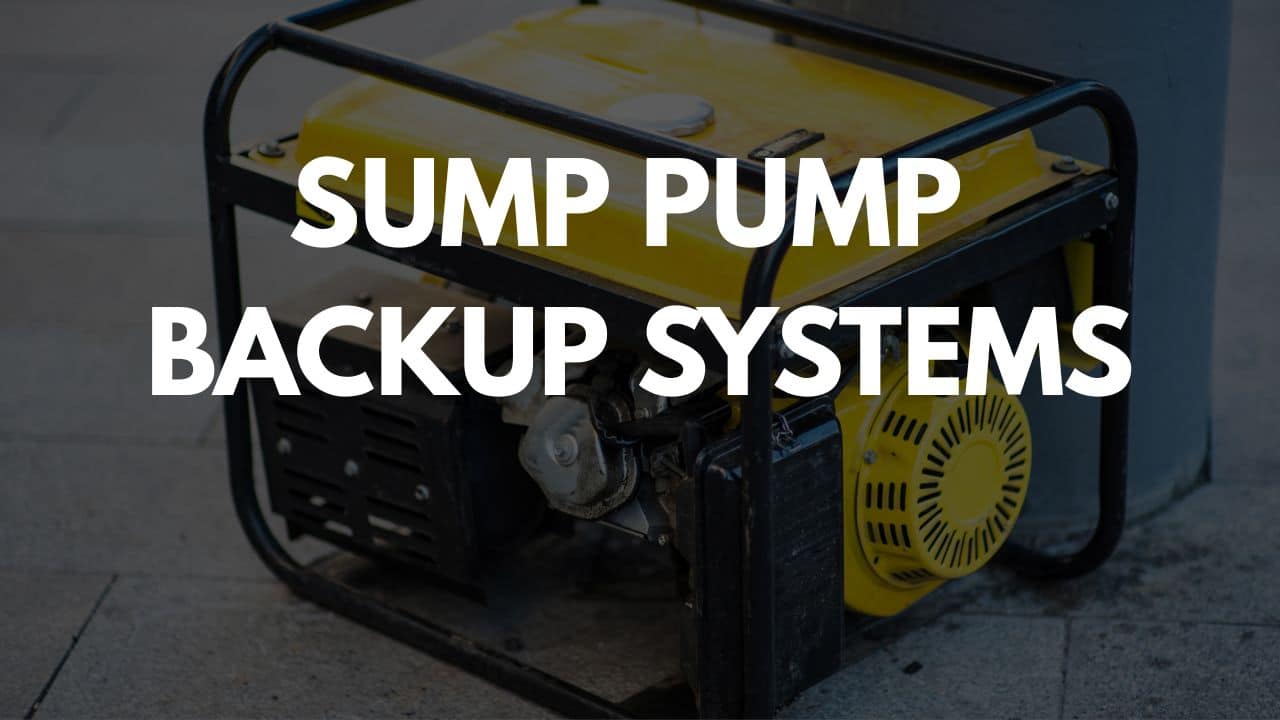When the rain is pouring and the power goes out, your primary sump pump might go quiet—and that silence can lead to thousands in water damage. That’s where a backup system comes in.
As someone who’s been in the basement during those worst-case scenarios, let me tell you: if you don’t have a backup, it’s not a matter of if you’ll need it—it’s when. This guide breaks down the main backup options and helps you choose the right one to keep your home dry, no matter what the weather throws at it.
⚡️ Why You Need a Backup Sump Pump System
Your main pump is only as reliable as:
- Your electricity
- The float switch
- The motor
- The discharge line
All of those can fail. A backup system ensures that even if your primary pump is out of commission, your basement stays protected. Think of it like a spare tire: you hope you won’t need it, but you’ll be glad it’s there.
🔋 Battery Backup Systems
✅ How They Work:
A separate pump is connected to a deep-cycle battery. If the power goes out or the main pump fails, the backup kicks in automatically.
✨ Pros:
- Works during power outages
- Easy to install alongside existing systems
- Models available with alarms and Wi-Fi alerts
⛔ Cons:
- Battery needs to be tested and replaced every 3–5 years
- Can only pump for a limited time (usually 5–8 hours continuously)
📝 Ideal For:
Homes with frequent storms and power outages
🚧 Water-Powered Backup Systems
✅ How They Work:
Uses your home’s water pressure to create a vacuum that sucks water from the pit and ejects it through a separate line. No electricity or battery required.
✨ Pros:
- Unlimited run time during emergencies
- No battery to maintain
- Great for long outages or unmonitored properties
⛔ Cons:
- Requires strong municipal water pressure (not compatible with wells)
- Can waste a lot of potable water (up to 1 gallon used for every 2 gallons pumped)
- Installation is more complex and may need a plumber
📝 Ideal For:
Homes with city water supply and long-term outage risks
♻️ Dual-Pump Systems
✅ How They Work:
Two electric pumps are installed side by side. If one fails or is overwhelmed, the second pump kicks in.
✨ Pros:
- Handles heavy water flow better
- Redundant protection (two motors, two switches)
- Can be combined with a battery or water-powered backup
⛔ Cons:
- Still dependent on electricity unless paired with battery
- Takes up more space in the sump pit
📝 Ideal For:
Large homes or areas with high water tables and frequent heavy rain
🔎 Comparing Your Options
| Feature | Battery Backup | Water-Powered | Dual Electric Pumps |
|---|---|---|---|
| Power Outage Safe | Yes | Yes | No (unless paired) |
| Maintenance Needed | Medium (battery) | Low | Medium |
| Run Time | Limited | Unlimited | Continuous (power-dependent) |
| Works with Well Water | Yes | No | Yes |
| Install Difficulty | Moderate | High | Moderate |
🤔 FAQ: Sump Pump Backup Systems
Q: Do I really need a backup if my main pump works fine?
A: Yes. Power failures and mechanical malfunctions happen. A backup is your insurance policy.
Q: How often should I test my battery backup?
A: Once a month. Also check the battery charge level and replace it every 3–5 years.
Q: Can I install one myself?
A: Many battery systems are DIY-friendly. Water-powered and dual setups often require plumbing or electrical knowledge.
Q: Can I combine backup systems?
A: Absolutely. Many homeowners pair a battery backup with a second electric pump or water-powered system for layered protection.
Q: Will the backup system alarm me if it kicks in?
A: Many models include audible alarms, lights, and even app alerts. Look for one with smart monitoring if peace of mind is a priority.
The right sump pump backup system isn’t about luxury—it’s about preparation. When your main pump gives out, you want to know something else is standing by. If you need help picking or installing the best option for your home, I’m just a call away.

